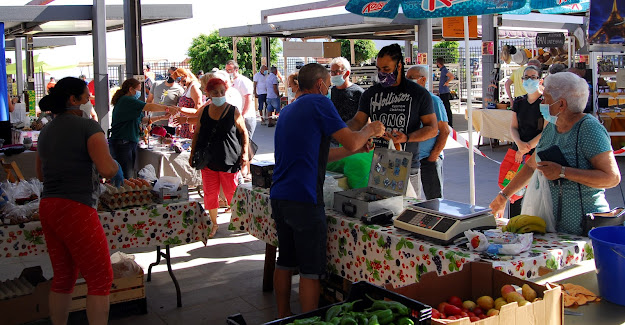The “Summer Islander” lives elsewhere but returns to his/her island in the summer or for special events like local patron saint celebrations. The Summer Islander is excessively patriotic, as Georges Brassens sang “Le con qui est né quelque part” – best left untranslated for those who do not speak French! But the story does illustrate the deeply possessive relation of the islander to the island and to people from elsewhere.
To the islander, people born here are “gente gente” – roughly “real people”. If they have returned from emigration to America they may initially be referred to as “retornados” – “returnees” – but soon become real people again. But their children born in Venezuela, despite having Spanish nationality, will always be “Venezolanos”.
Everyone else is, as some English used to say, “not one of US”. We are very rarely fully accepted. We are tolerated, welcomed, even admired, as long as we don’t rock the boat. Of course that’s the same everywhere, but perhaps nowhere so innocently admitted. One Easter holiday years ago, a neighbour said to me,
“We didn’t know you were here! We haven’t heard you.”
On the other Canary Islands, people from the mainland are often depreciatively referred to as “Godos”. Not so on El Hierro. All Spaniards from the mainland, and from the other Canaries as well, are lumped together as “los de fuera” – “outsiders”. For example, if you don’t know who your landlady is talking about, she might say, “You know, that woman from outside (“esa de fuera”) who drives a yellow Volkswagon.”
It is not my intention to suggest the islanders are xenophobic. They are not. The curious categorization of others that I describe is the islanders’ strategy to come to terms with the changing circumstances that have overcome them in a shorter time than is the case elsewhere. For four and a half centuries, 1400 – 1850, the simple people of El Hierro survived in isolated subsistence. The only contact with outsiders was with a few clergymen and the occasional administrator of the absentee lord of the island, in both cases collecting tithes. In the nineteenth century, the pressure on the peasants increased and the period of emigration commenced. In America, the islanders clung to their island precedence, the only identity they had, and magnified its virtues, in the face of their new role as underdogs in a foreign society. Their return, largely in the second half of the twentieth century, more or less coincided with the advent of massive tourism, a few representatives of which made it to the island. Some islanders have also been to places other then America as soldiers, students, taxidrivers, shopkeepers … But the fundamental vision of himself and El Hierro that the islander has is the one the emigrant imagined. He is on his island. True, it has changed but he and the other islanders can still cling to their picture of it. There are also a lot of other people here, but he doesn’t quite know why, what they are doing here, how long for, or even whether they should be …
 |
| Before Covid, the Sunday morning market at Frontera used to be an untidy boisterous event, one of the few where you could expect to see in one place the full variety of the island's human fauna. It still is. You might not be able to identify in the photo the full spectrum but we are all here: real people; summer islanders; a few outsiders, returnees and Venezuelans, and, of course quite a few 'alemanes' including, apart from myself, real Germans, Italians, French, Swedes and perhaps a Russian. Incidentally, if you decide to go and see the market for yourself, don't expect to see stacks of the fruit I mentioned in my last entry, most of the produce comes from Tenerife at the nearest! |

también hay algunos suizos que viven en la isla, a ellos también los llaman "alemanes". Yo siempre contesto con una sonrisa "no todos los altos y rubios son alemanes."
ReplyDeletetambién hay algunos suizos que viven en la isla, a ellos también los llaman "alemanes". Yo siempre contesto con una sonrisa "no todos los altos y rubios son alemanes."
ReplyDeleteIt would have been difficult for me to name all the nationalities on the island or, in fact, all the nationalities present when I took the photo even if I could have identified them ... And it's good to see you take it with philosophy, although I must admit I have sometimes been personally annoyed by being insistently called "alemán".
DeleteHola Martin, me ha gustado mucho volver a leer tus escritos. Gracias por continuar.
DeleteYo sigo en Asturias. Ya tengo preparado un delicioso queso de mi tierra para compartirlo contigo y con tu esposa. Supongo que ese delicioso vino tuyo, esté en su punto.
Nos vemos pronto. no dejes de escribir por favor.